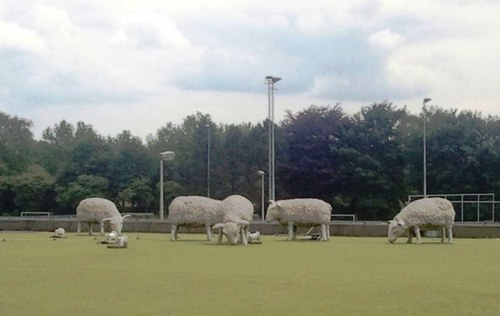Yet another ‘Book By Quote’ then. A full of … ‘marvellous content’ one again.
An attempt to subjectively summarise a book by the quotes I found worthwhile to mark, to remember. Be aware that the quotes as such, aren’t a real unbiased ‘objective’ summary; most often I heartily advise to read the book yourself.
This book, should be translated to a great many langauges and be mandatory reading for all high school student least. Many more to include. E.g., ‘grown-ups’, and politicians. Et al.
Here we go then, with David van Reybrouck, Tegen Verkiezingen, Bezige Bij 2014, ISBN 9789023474593:
‘Le peuple anglais pense être libre, il se trompe fort, il ne l’est que durant l’élection des membres du Parlement; sitôt q’ils sont élus, il est esclave, il n’est rien.’
Jean Jacques Rousseau, Du contrat social (1762)
Er is iets vreemds aan de hand met de democratie: iedereen lijkt ernaar te verlangen, maar niemand gelooft er nog in (p.9)
Politici gaan er dus massal van uit dat burgers er andere, in hun [sic; red.] ogen minder hooggestemde waarden op nahouden dan zijzelf. (p.11)
Democratie, aristocratie, oligarchie, dictatuur, despotisme, totalitarisme, absolutisme, anarchie: elk politiek stelsel moet een evenwicht zien te vinden tussen twee fundamentele criteria: efficiëntie en legitimiteit. (p.13)
De crisis van de legitimiteit blijkt uit drie onmiskenbare symptomen. Ten eerste gaan steeds minder mensen stemmen. … Ten tweede, naast kiezersverzuim is er kiezersverloop. … Ten derde zijn steeds minder mensen lid van een politieke partij. (pp.14-15)
Op zich gaat het hier om een heel merkwaardige evolutie: de tijden zijn onvoorspelbaarder dan ooit, flexibel inspelen op acute noden is aan de orde van de dag, maar kennelijk moet het beleid op voorhand tot in de puntjes worden uitgestippeld en dichtgespijkerd, zo groot is het wantrouwen onder de coalitiepartners geworden, zo groot ook de nervositeit voor een afstraffing door dekiezer. (p.17)
Waren zulke projecten vroeger een bron van prestige en kundigheid, tegenwoordig zijn ze op hun best een bestuurlijke nachtmerrie. (p.18)
Bij het begin van de eenentwintigste eeuw is souvereiniteit, ooit het fundament van de natiestaat, een zeer relatief begrip geworden. (pp. 18-19)
Politiek is altijd de kunst van het haalbare geweest, en tegenwoordig is het de kunst van het microscopische geworden. (p.19)
Met het beroep van politicus vergaat het zoals met dat van onderwijzer: Vroeger een nobele functie met aanzien, nu een hondenbaan. (p.20)
Continue reading “Book by Quote: Tegen Verkiezingen”






 [‘goza just like that, for no apparent quality or reason]
[‘goza just like that, for no apparent quality or reason]

